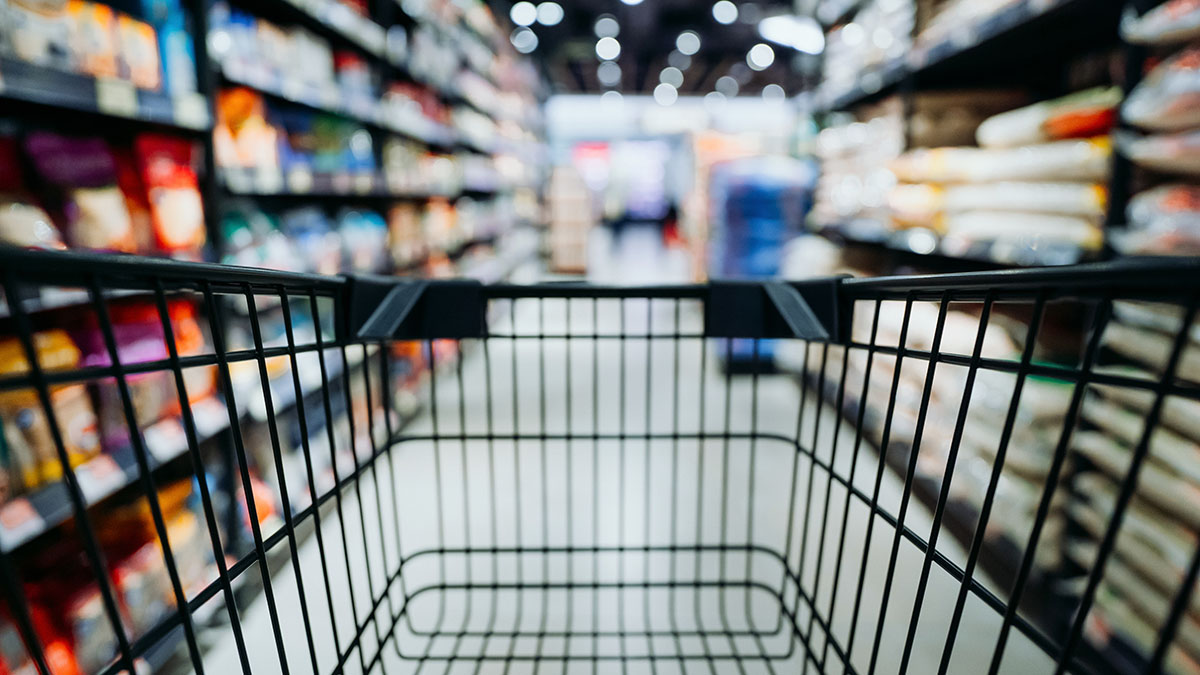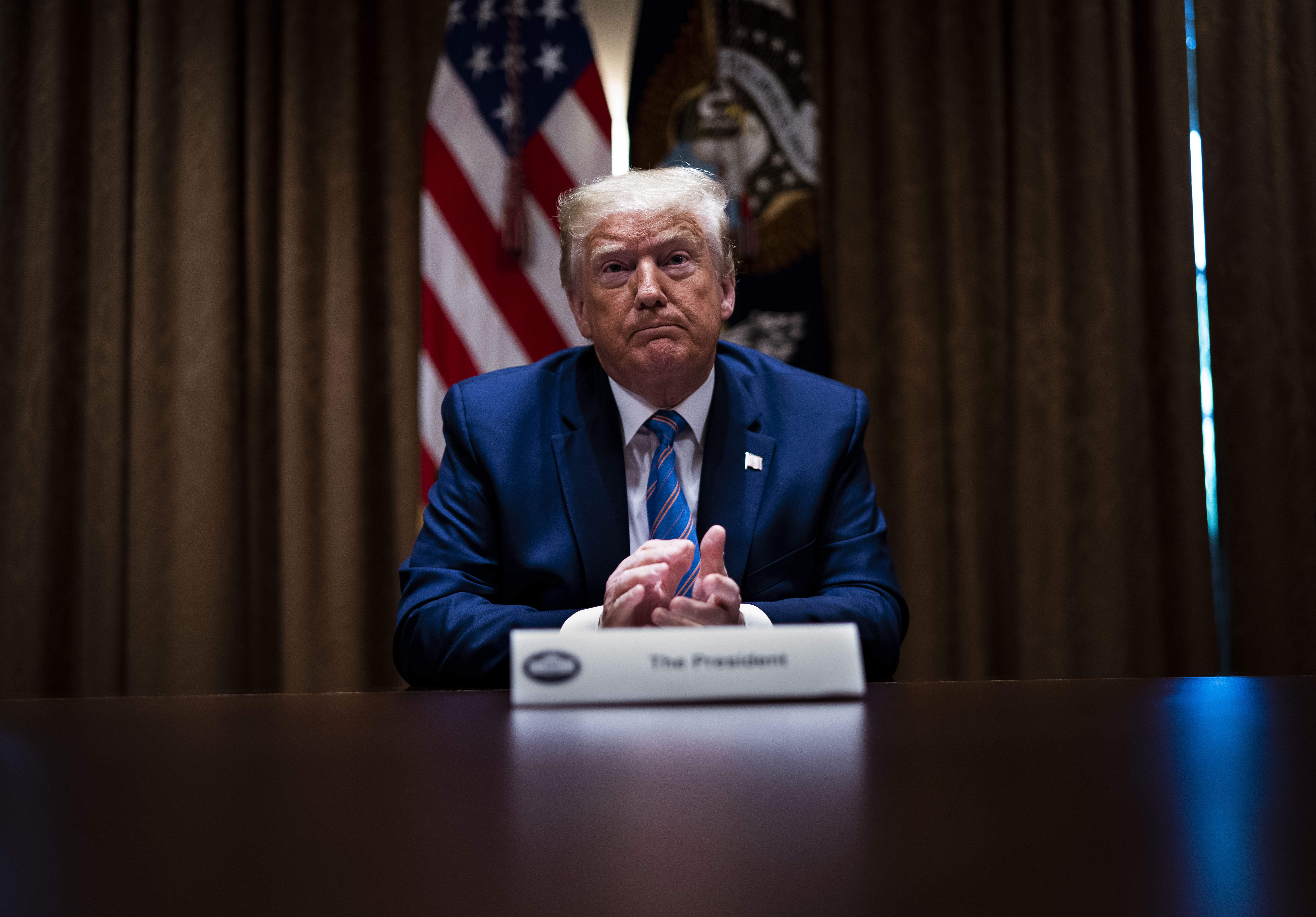The number of confirmed coronavirus cases worldwide has topped 16 million Sunday, according to a tally by Johns Hopkins University. The U.S. leads the count with 4.1 million, followed by 2.3 million in Brazil and 1.3 million in India.
The U.S. also has the highest number of deaths with 146,460, followed by 86,449 in Brazil and 45,823 in the U.K.
In the U.S., Florida surpassed New York on Sunday to become the state with the second highest number of coronavirus cases, with more than 9,000 new cases pushing Florida's case count close to 425,000.
California currently has the most cases in the U.S. with more than 450,000, and New York has around 416,000. But New York still has the highest death toll.
As the death toll for recent days comes into focus, this one grim statistic stands out: between July 7 and July 17, 100 or more Floridians died on seven of those 10 days, by far the deadliest period for the virus in the state.
Coronavirus Pandemic Coverage
Here are the latest updates on the coronavirus pandemic in the U.S.:
Trump Postpones Yankee Stadium First-Pitch Plan
President Donald Trump won’t be throwing out the first pitch at Yankee Stadium next month after all.
Trump tweeted Sunday that he won’t be able to make the trip because of his “strong focus” on the coronavirus, vaccines and the economy. Trump said in the tweet: “We will make it later in the season!”
He had announced at a briefing Thursday on Major League Baseball’s opening day that he’d be at Yankee Stadium on Aug. 15 to throw out the first pitch.
Trump has been trying to show voters that he is taking the virus seriously by holding briefings and canceling Republican convention events set for Jacksonville, Florida. Florida is among several states where the virus is raging.
CDC Changes COVID-19 Guidance on How Long Patients Need to Be Isolated
People who have been confirmed with mild to moderate COVID-19 can leave their isolation without receiving a negative test, according to recently revised guidance from the Centers for Disease Control and Prevention.
Increasing evidence shows that most people are no longer infectious 10 days after they begin having symptoms of COVID-19. As a result, the CDC is discouraging people from getting tested a second time after they recover.
“For most persons with COVID-19 illness, isolation and precautions can generally be discontinued 10 days after symptom onset and resolution of fever for at least 24 hours, without the use of fever-reducing medications, and with improvement of other symptoms,” the CDC says.
For people who have tested positive but don't have symptoms, "isolation and other precautions can be discontinued 10 days after the date of their first positive RT-PCR test for SARS-CoV-2 RNA.”
Read the full story at NBCNews.com.
Extra Unemployment Aid Expires as Virus Threatens New States
As public health officials warned Friday that the coronavirus posed new risks to parts of the Midwest and South, enhanced federal aid that helped avert financial ruin for millions of unemployed Americans was set to expire — leaving only threadbare safety nets offered by individual states to catch them.
Early in the pandemic, with the economy cratering, the federal government added $600 to weekly unemployment checks. That increase ends July 31, though this is the last week recipients will get the extra funds. Meanwhile, Congress is still haggling over next steps and most states will not be able to offer nearly as much while they wrestle with diminishing unemployment trust funds.
Every state offers assistance for at least some unemployed workers based on a portion of their previous earnings. The maximum amounts vary widely, from $235 a week in Mississippi to $1,234 in Massachusetts. The length of time benefits are available ranges from as few as six weeks in Georgia to up to 28 weeks in Montana. Most states normally cut people off after 26 weeks.
But with the enhanced federal aid that helped avert financial ruin for millions of unemployed Americans set to expire as public health officials warn of new risks to parts of the Midwest and South, leaving only threadbare safety nets offered by individual states to catch them.
Fauci: COVID-19 Vaccine Likely Won't Be Widely Available Until 'Several Months' Into 2021
White House coronavirus advisor Dr. Anthony Fauci said Friday that a coronavirus vaccine likely won’t be “widely available” to the American public until “several months” into 2021, CNBC reports.
Public health officials and scientists expect to know whether at least one of the numerous potential Covid-19 vaccines in development is safe and effective by the end of December or early next year, the director of the National Institute of Allergy and Infectious Diseases said during a live Q&A with the Washington Post.
“It is likely that at the beginning of next year we would have tens of millions of doses available,” Fauci said, adding that some drugmakers have predicted more doses than that. “I think as we get into 2021, several months in, that you would have vaccines that would be widely available.”
There are no FDA-approved drugs or vaccines for the coronavirus and more than 150 potential vaccines are being developed worldwide, according to the World Health Organization, with at least 25 already in human trials.
Though scientists expect to have an effective vaccine widely available by next year, there is never a guarantee. While drugmakers are racing to make millions of doses of vaccines, there’s a chance the vaccine will require two doses rather than one, potentially further limiting the number of people who can get vaccinated once a vaccine becomes available, experts say.
Additionally, scientists say that questions remain about how the human body responds once it’s been infected with the virus. The answers, they say, may have important implications for vaccine development, including how quickly it can be deployed to the public.
Read the full story on CNBC.com
Outbreak at Alaska Seafood Processing Plant Grows
Nearly 100 workers at a seafood processing plant in Seward, Alaska, have tested positive for the coronavirus.
The Peninsula Clarion reports they’ve been taken to Anchorage to quarantine. It says the outbreak was identified after an employee at OBI Seafoods tested positive last Sunday. All 262 employees at the plant were tested after and the tests revealed that 96 of them were infected with the coronavirus.
The news came three days after officials say 85 crew members aboard a factory fishing vessel docked in the Aleutian Islands tested positive. OBI Seafoods ordered employees living in company housing not to leave company property.
Detroit Students Attending Summer School Test Positive for COVID-19
At least two Detroit students attending summer school have tested positive for the coronavirus after a judge ordered tests as a condition for attendance in the voluntary classes.
The students were told to self-quarantine with their families, The Detroit News reported Friday.
More than 250 students have been tested since U.S. District Judge Arthur Tarnow’s order Tuesday. The Detroit district has said more than 600 students have been attending in-person classes since July 13. There’s also an online option.
The testing order followed a lawsuit by activists who are opposed to in-person instruction. The district requires students and staff to wear masks and the number of students in classrooms is limited.
In-person instruction across Michigan was halted in March. Detroit is one of the few districts to reopen classrooms for the summer if families choose to send their kids.
Dr Birx: 'Still an Open Question' How Rapidly Children Under 10 Spread Coronavirus
As the debate continues over whether children should return to school this fall, the coordinator of the White House's coronavirus task force says it's "still an open question" how much children under 10 spread the illness.
"We know that children under 18 are less sick, but there are some that suffer terrible consequences if they have underlying conditions," Dr. Deborah Birx told Savannah Guthrie on TODAY Friday. "What I can't tell you for sure, despite the South Korea study, is whether children under 10 in the United States don't spread the virus the same as children over 10.
Birx said while we know that children under 10 do get infected, it's not clear how rapidly they spread the virus, adding that more studies in the U.S. are still needed.
That's because the U.S hasn't tested enough kids to know one way or another. Earlier this month, Birx told reporters at a White House task force briefing that there isn't enough data to conclude that children are less likely to spread infection to others.
“I think it really comes to the evidence base of what do we have as far as testing in children,” Birx said. “So if you look across all of the tests that we’ve done, and when we have the age, the portion that has been the lowest tested portion is the under-10-year-olds.”
Birx also urged Americans to "change our behavior now" because the recent surge in cases in the southern U.S could make their way north.
The densely packed New York metropolitan area had been the hardest-hit section of the country, but the daily number of cases and deaths declined after a strict lockdown. The number of cases has been growing in southern states, including South Carolina, Georgia and Florida, where hospital officials say they desperately need medication to treat the patients filling up beds.
Birx says it’s difficult for people to understand “how deeply you have to clamp down” with social distancing, hand washing, mask wearing and avoiding crowds to stem the spread of the deadly virus. Birx says that’s why health professionals have “called out the next set of cities” where they see early warning signs. If those cities make changes now, they “won’t become a Phoenix.”
In a stretch of 10 days last month, Arizona health officials reported on seven occasions more than 3,000 daily cases. Arizona’s Maricopa County, which includes Phoenix, has more than 100,000 confirmed cases and more than 1,600 deaths.
Read the full story on TODAY.com
Why COVID-19 Test Results Are So Delayed
The enormous number of Americans getting swabbed for the coronavirus has overwhelmed every step of the COVID-19 testing process, creating shortages of critical supplies in laboratories and inundating them with more specimens than they can process, NBC News reports.
The testing spike, which experts say has been particularly dramatic over the past month as more coronavirus hot spots have popped up, has meant waits of up to two weeks or more for test results in some cases — a far from ideal turnaround time.
"The challenges that labs are facing are complex," said Louise Serio, a spokesperson for the American Clinical Laboratory Association, a trade group that represents companies such as Quest Diagnostics and LabCorp. "There is a significant strain on the global supply chain."
Testing capacity is increasing every week, she said, and employees are working round-the-clock to run as many tests as possible, but they are running out of necessary chemicals and other products faster than their manufacturers can replenish them.
The backlog could get worse if the outbreak continues on its current trajectory.
Read the full story on NBCNews.com



